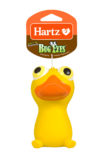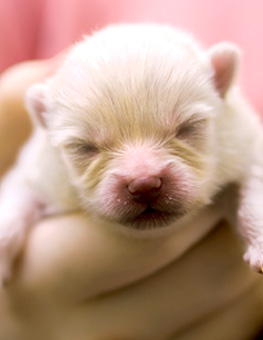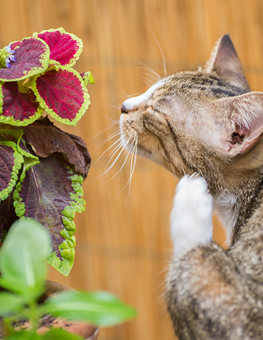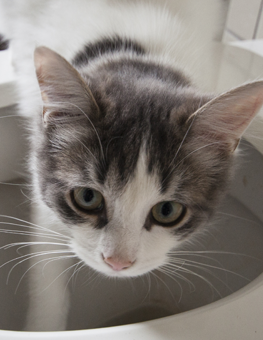Is My Dog Depressed?
If your pup seems a bit down in the dumps, they might be dealing with dog depression. Knowing what to look for, and how to support your pet, can make a big difference in helping them recover.

A lack of interest in normal activities can be a strong indicator that your dog isn’t as happy as they should be.
Has your dog lost its happy, tail-wagging attitude lately? Wondering, is my dog depressed or sick? As a pet owner, you might be surprised to learn that your pet could be depressed. But how can you know for sure? And what do you do if that’s the case?
Since there’s no way to test for canine depression, observing their behavior is key to determining if your pet is affected. Once you know, you can take the steps to help your dog get back to its old self.
Signs of Depression in Dogs
How do you know if a dog is depressed? You can learn a lot about how your dog is feeling by studying their habits and behaviors. If you see your dog showing some of the following signs, depression may be the cause.
- Appetite changes are unusual for dogs, who prefer a regular eating schedule, and may signal depression – or even a medical issue – if your dog no longer loves feeding time.
- A lack of interest in activities your dog normally enjoys can be a strong indicator that your dog isn’t as happy as they should be.
- Growling, aggression, or other major mood changes in an otherwise happy dog could be a sign of depression and may require help from your veterinarian or trainer to get under control.
- Excessive licking or paw nibbling are common behaviors in depressed dogs, who use this to comfort themselves; however, they can also mean your pet is dealing with allergies, fleas or other issues.
- Hiding and avoiding interaction suggests your dog wants to be left alone, which could point to a deep depression, or possibly be linked to an illness or injury.
- Sleeping too much or too little maybe your dog’s way of dealing with depression, as most adult dogs need 12-14 hours of sleep on an average day.
My Dog is Depressed. But Why?
Like humans, dogs are complex creatures with unique needs and expectations. Just like us, major changes or troubling events can have a big impact on their emotional state. Here are the triggers to watch out for with your pup.
- Illness or injury: Health problems can be a major contributor to depression. If you suspect your pooch isn’t feeling well, or they’ve hurt themselves, contact your veterinarian immediately. Ruling out a physical cause first can help you determine if your pet needs medical attention or is depressed for other reasons.

If your dog is left alone for hours at a time with no outlet for their energy or instincts, it could be making them depressed.
- Lack of attention and exercise: Work, family, and social obligations can take time away from your furry friend. But as social animals, dogs need lots of activity and stimulation to stay happy. If your dog is left alone for hours at a time with no outlet for their energy or instincts, it could be making them depressed.
- Grief: Dogs experience and express the loss of a loved one much like humans. When people or other pets in your home die, move away, or leave for an extended period, it can impact your dog’s emotional state.
- Correcting bad behaviors: Frequently correcting a dog for unwanted behavior can make your pet feel helpless, and may lead them to stop offering behaviors altogether, which can quickly spiral into depression and avoidance.
- Environmental changes: Canine depression can be triggered by big or small changes in their environment, such as moving to a new home, renovating a space, or having poor weather for long periods. While most dogs will adjust over time, these changes can be a major factor in your dog’s emotional well-being.
- A sick or depressed owner: The bond between a dog and its owner runs deep, so if you’re going through a rough period yourself, your dog may be tuning into your feelings and behavior.
How to Treat Depression in Dogs
If you're wondering how to help a depressed dog, know that with patience and understanding, most dogs can recover from depression on their own. However, an extra dose of attention, fun activities, and steady reassurance can help speed up the process.
- Keep a consistent routine: Dogs are at their happiest when they know what to expect in terms of mealtimes, exercise, play, and other activities. Having a consistent schedule full of activities, interaction, and downtime are the ingredients for a happy pup.
- Offer the right kind of attention: Praising or rewarding a pet when they’re depressed can worsen the problem, experts suggest. Instead, wait for your dog to show signs of happiness – such as tail wags – before giving them rewards to encourage more of this behavior.

To keep your dog at its happiest, do the things they love more often.
- Get them a companion: If your pet has lost an animal companion, finding them a new friend can work wonders at lifting them out of depression. If this won’t work for your situation, more frequent social activities like park visits, doggie daycare, and training classes could help.
- Stay active: Dogs love to play, and every dog has a way of staying active and entertained. To keep your dog at its happiest, do the things they love more often, then praise and reward them when you see your pet enjoying it.
If nothing seems to be working with your pup, it may be time to speak to your veterinarian. Working together, you can help your dog overcome depression, and strengthen the bond in your pet-owner relationship.















